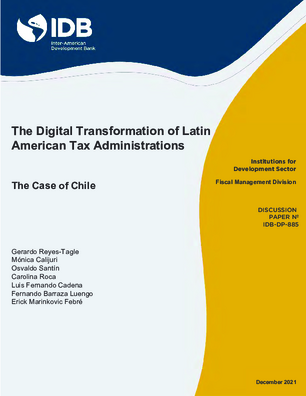The Digital Transformation of Latin American Tax Administrations: The Case of Chile
Date
Dec 2021
The exponential growth in the capacity to transmit, store, and process large quantities of data through information and communication technologies is transforming the way in which tax administrations carry out their functions. The tax administrations of Latin American and Caribbean countries are currently making significant efforts to exploit digital technology so as to provide better services, eliminate gaps in compliance and become more efficient. This paper presents a methodology for identifying the gaps between the current state of the regions tax administrations and the digital model that has been evolving in international forums based on successful experiences with a specific focus on Chile. The analytical dimensions considered are the countrys prevailing digital ecosystem, the capacities available to the tax authority, the processes for obtaining data from taxpayers and, finally, outputs in the form of the digital services that these organizations provide. In Chiles favorable digital ecosystem, the Internal Revenue Service, a pioneer in the implementation of electronic invoicing and pre-filled tax returns, has made significant progress, although there is still room for improvement when it comes to data governance.




